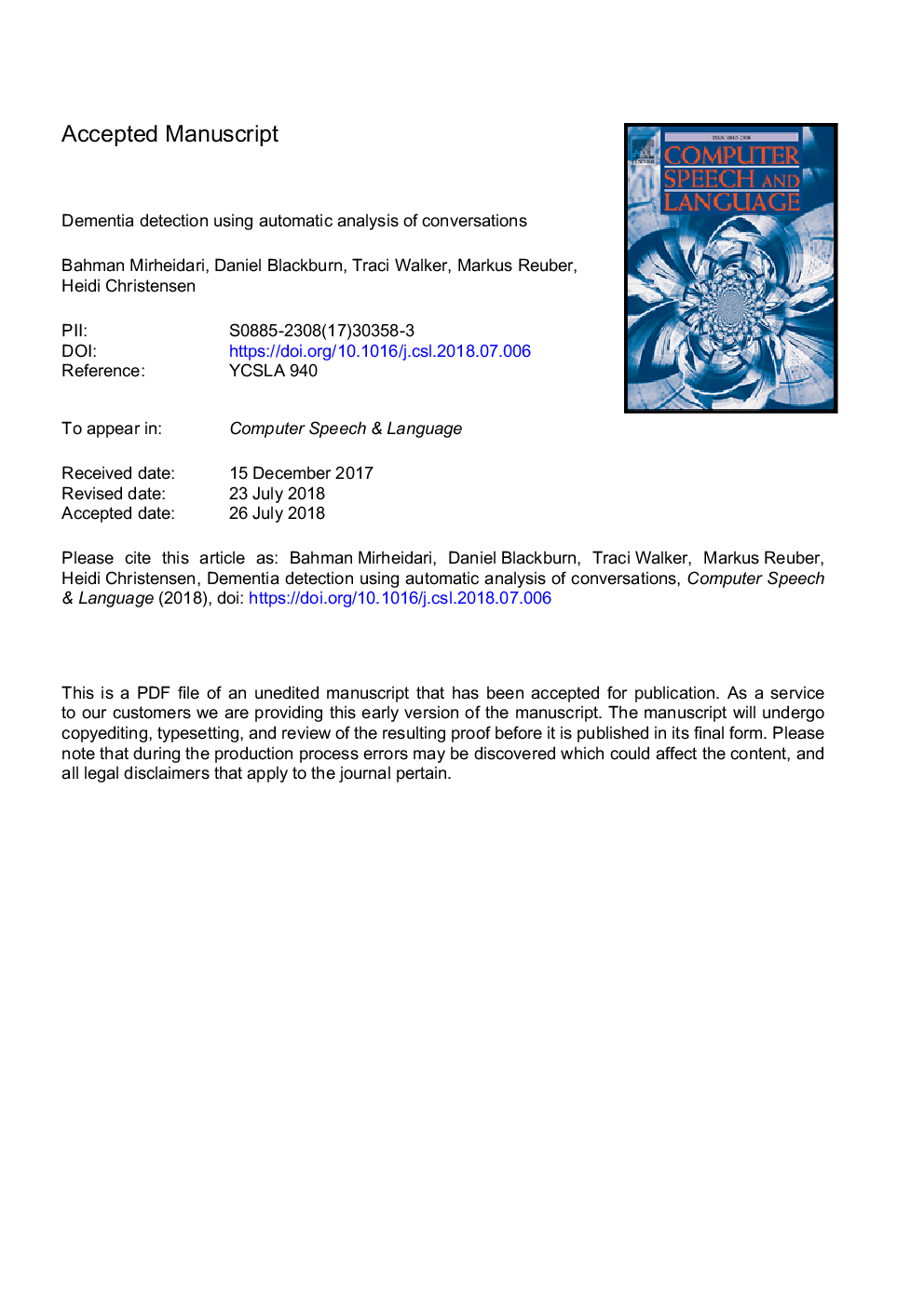| Article ID | Journal | Published Year | Pages | File Type |
|---|---|---|---|---|
| 9952413 | Computer Speech & Language | 2019 | 24 Pages |
Abstract
Neurogenerative disorders, like dementia, can affect a person's speech, language and as a consequence, conversational interaction capabilities. A recent study, aimed at improving dementia detection accuracy, investigated the use of conversation analysis (CA) of interviews between patients and neurologists as a means to differentiate between patients with progressive neurodegenerative memory disorder (ND) and those with (non-progressive) functional memory disorders (FMD). However, doing manual CA is expensive and difficult to scale up for routine clinical use. In this paper, we present an automatic classification system using an intelligent virtual agent (IVA). In particular, using two parallel corpora of respectively neurologist- and IVA-led interactions, we show that using acoustic, lexical and CA-inspired features enable ND/FMD classification rates of 90.0% for the neurologist-patient conversations, and 90.9% for the IVA-patient conversations. Analysis of the differentiating potential of individual features show that some differences exist between the IVA and human-led conversations, for example in average turn length of patients.
Keywords
Related Topics
Physical Sciences and Engineering
Computer Science
Signal Processing
Authors
Bahman Mirheidari, Daniel Blackburn, Traci Walker, Markus Reuber, Heidi Christensen,
